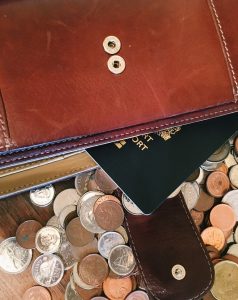Is Forex Real? The Truth Behind the Trading Market
Forex, short for foreign exchange, is the largest financial market in the world. With an average daily trading volume of over $6 trillion, it dwarfs other financial markets such as the stock market. However, despite its popularity, there are still skeptics who question the legitimacy of forex trading. In this article, we will explore the truth behind the forex market and address common misconceptions.
Forex trading involves the buying and selling of currencies with the aim of making a profit from the fluctuations in exchange rates. The forex market is decentralized, meaning it operates 24 hours a day, five days a week, across different time zones. It is not tied to a physical location, unlike stock exchanges.
One common misconception about forex trading is that it is a scam or a form of gambling. While there are certainly fraudulent entities in the forex industry, it is unfair to label the entire market as illegitimate. Forex trading is a legitimate financial activity that is regulated by various governmental and non-governmental bodies around the world.
In most countries, forex brokers are required to be licensed and regulated by regulatory authorities. These authorities set certain standards and rules that brokers must adhere to, ensuring a level of transparency, fairness, and investor protection. It is essential for traders to choose a reputable and regulated broker to ensure the safety of their funds.
Another misconception is that forex trading is only for the wealthy or professional traders. In reality, forex trading is accessible to anyone with an internet connection and a small capital. Many brokers offer mini or micro accounts, allowing traders to start with a minimal investment.
Furthermore, the availability of leverage in forex trading enables traders to control larger positions with a smaller amount of capital. Leverage allows traders to amplify their potential profits, but it also increases the risk of losses. While leverage can be a powerful tool, it requires proper risk management and should be used with caution.
Forex trading is also often criticized for its high volatility and potential for significant losses. It is true that forex markets can be highly volatile, especially during major economic events or geopolitical developments. However, volatility can also present opportunities for traders to profit. With proper analysis, risk management, and a disciplined approach, traders can minimize their losses and maximize their gains.
Moreover, forex trading is not solely based on luck or chance. It requires a deep understanding of fundamental and technical analysis, as well as continuous learning and practice. Successful forex trading involves developing a trading strategy, analyzing market trends, and making informed decisions based on sound analysis.
It is important to note that forex trading carries risks, and not all traders will be profitable. Like any form of investment, there is no guarantee of making money in forex trading. It requires dedication, discipline, and a willingness to learn from mistakes.
In conclusion, forex trading is a real and legitimate financial market. While there are risks involved, it offers opportunities for individuals to profit from currency fluctuations. The key lies in understanding the market, choosing a reputable broker, and developing a well-thought-out trading strategy. With the right approach, forex trading can be a rewarding and profitable endeavor.





